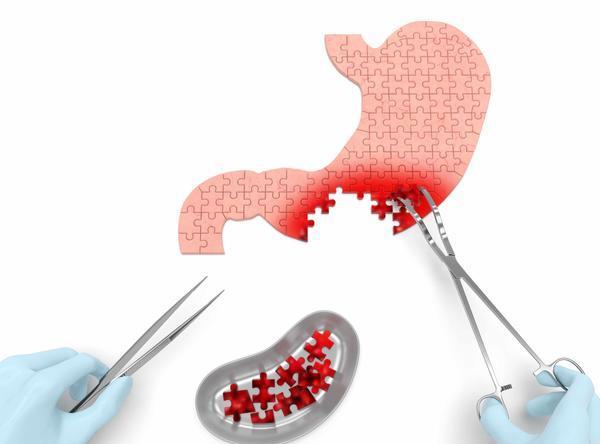Stomach cancer, as the name suggests, is a malignant tumor that originates from the epithelium of the gastric mucosa!
Among all gastrointestinal tumors, it ranks second in the incidence rate after bowel cancer. However, it is the first malignant tumor of the digestive tract in the number of deaths, with nearly 370,000 patients dying of stomach cancer every year. The fundamental reason behind the high mortality rate of gastric cancer is that it is difficult to prevent and early detection.

The initial symptoms of gastric cancer are not typical, and there may even be no symptoms in the early stage, or there are non-specific manifestations such as epigastric discomfort and belching similar to ordinary chronic stomach diseases, which are very similar to gastritis and gastric ulcers. Patients tend to overlook it and end up missing out on the best time for stomach cancer to be diagnosed and treated.
Therefore, the prevention of stomach cancer has become the focus, and if you want to prevent a disease, you must first understand the cause of its disease. In clinical view, the following factors may be the driving force behind the emergence of stomach cancer:
1. Long-term smoking
Do you think smoking is just a risk factor for respiratory damage and lung cancer? In fact, the damage of cigarettes to the body is systemic, it not only damages your respiratory tract, but it is also one of the high risk factors for stomach cancer. Relevant data studies have shown that the incidence of stomach cancer in smokers is 50% higher than that of smokers.
The reason for this is related to the various carcinogens contained in cigarettes, such as multi-chain aromatic hydrocarbon compounds, benzopyrene, etc., which are highly carcinogenic substances, which can cause damage to the gastric mucosa and promote DNA mutation in mucosal cells;
2. Dietary effects
The incidence of gastric cancer in China has an extremely obvious regional gap, in the northwest and east coastal areas of China, the incidence of gastric cancer is significantly higher than that in other southern regions.
The reason for this is that it is related to local eating habits, long-term eating of high-salt foods, pickled foods, by the salt in the food exceeding the standard, corroding the gastric mucosa, itself is easy to cause a variety of gastric mucosal diseases, such as inflammation, ulcers and so on.
Secondly, the nitrite contained in pickled food can be converted into carcinogen nitrosamines after entering the body, coupled with the influence of mycotoxins, polycyclic aromatic hydrocarbon compounds, etc., the cancer rate will also increase;
3. Helicobacter pylori infection
This is a micro-anaerobic spiral-shaped bacterium that can spread to each other through common diets, shared tableware, etc., and can parasitize in the stomach, mouth, duodenum and other areas of infected people after infection. It is also by far the only bacteria found that can survive in the stomach. The new infection can promote the conversion of nitrate into nitrite and nitrosamines.
At the same time, due to the inflammation of the gastric mucosa caused by its infection, coupled with environmental pathogenic factors, the excessive proliferation of gastric mucosal epithelial cells leads to cell malformations and carcinogenicity. In addition, studies have shown that the toxic products of Helicobacter pylori CagA and VacA may have carcinogenic effects;
4. Long-term alcoholism
The more you get used to drinking alcohol for a long time and drinking high concentrations of liquor, the greater the possibility of stomach cancer in the future. This is so because alcohol would have caused direct damage to the gastric mucosa, leading to a variety of chronic stomach diseases.
At the same time, alcohol also belongs to a class of carcinogens, which can change the ability of mucosal cells to express DNA, promote cell DNA mutation, and increase the chance of cancer;
5. There is no cure for the disease
Relevant research and investigation show that gastric polyps, chronic atrophic gastritis, and residual stomach after partial gastric resection may be accompanied by different degrees of chronic inflammatory infiltration, gastric mucosal intestinal metaplasia, atypical hyperplasia, and eventually transformed into cancer. In clinical view, having chronic atrophic gastritis with atypical hyperplasia is actually a precancerous lesion.
Written in the end: the incidence of stomach cancer is affected by the long-term action of multiple factors, the above five factors just increase the possibility of cancer, although not everyone will have cancer, but after all, there are risk factors. Therefore, it is necessary to actively adjust the dietary state from now on, stay away from alcohol damage, and treat the disease in time.